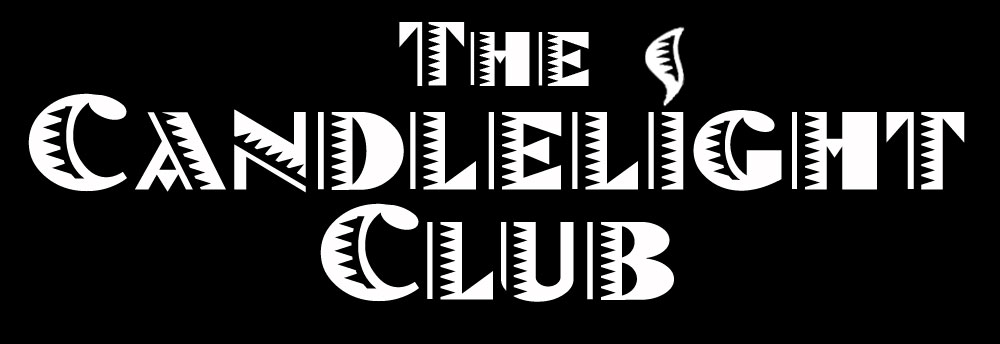The band playing at our 20th July event are the Lucky Dog Dance Band, which was actually created from a project to show silent movies with live accompaniment—this was how movies were screened in the era before the Talkies.
“Silent movies were never actually silent,” says founder Emily O’Hara. “Before about 1910 there were no purpose-built cinemas and films were screened as novelty acts in circuses. The early French filmmaker Georges Méliès was introduced to the medium when he saw a film shown by the Lumière Brothers in a tent as a sideshow. These films would be accompanied by whatever musicians were available—it might be the lady who normally plays the organ in church. Later, as dedicated cinemas were built, you had full bands or even orchestras.”
As the popularity of the movies took off it meant a huge amount of work was available for musicians as demand outstripped supply. “Harpo Marx from the Marx Brothers was a great harp player but a fairly hopeless pianist,” Emily says, “yet he got work playing the piano in cinemas, not least because he looked identical to his brother Chico, who of course was a great pianist. Harpo only knew two tunes, and he pretty quickly got sacked, but such was the need for accompanists that he quickly got more work.”
Anna May Wong in Piccadilly (1929)
Usually the musicians hadn’t seen the film before—they just played along with whatever music seemed appropriate to what was happening on screen. In time studios would send out scene lists, informing musicians what would happen in each scene and what mood they should be evoking. You could buy books of music with pieces simply labelled “Fight Scene” or “Chase Scene”.
Emily’s own journey started when she realised she had never actually seen a silent movie and became curious. She even bought an old projector on eBay. (I asked if she used it for screenings but she said that even if you can get prints of old movies, celluloid is famously flammable and not a great idea for an amateur to use with a vintage projector.)
Emily’s first silent screening was at Jamboree in Limehouse where they showed the early Laurel and Hardy short The Lucky Dog. (In fact it was a Stan Laurel film, with Oliver as a guest—Stan’s career was already established as a solo star before the two formed their partnership.) From this the project took its name, the Lucky Dog Picturehouse. That first showing had just piano accompaniment but then Emily’s partner, the drummer Nick Ball, brought some percussion along and the ensemble grew from there. Emily has even experimented with presenting the band with a film they have not seen before and letting them improvise in the old way.
Eventually live accompaniment gave way to the Talkies. Early attempts at movie sound involved such things as gramophone records that had to be started at just the right point, and the sound frequently drifted out of sync (something lampooned in a scene in Singing in the Rain). Many people thought talking pictures were a fad that would soon fade, but when they caught on it meant the end of some stars’ career if they didn’t have what it took to be a speaking actor (Douglas Fairbanks apparently had rather silly voice, Emily tells me). It also meant the loss of a lot of work for musicians, and there were even protests.
But if you want to know what the not-so-silent silent movie experience was like, get yourself to one of the Lucky Dog screenings. Their next show is on 25th July, a chance to see the extraordinary Underground, a thriller indeed set on London’s underground train network, at the Brunel Museum in Bermondsey, with a live piano score, followed by a run of films at Wilton’s Music Hall in August:
Monday 5th August
The Adventures of Prince Achmed (1922) plus shorts
Original score by Peter Coldham (piano)
Experience Lotte Reiniger's magical world of Prince Achmed and his flying horse in the world's oldest surviving animated feature film and the perfect silent movie for the whole family.
Tuesday 6th August
Buster Keaton in The General (1926) plus shorts
Original score by Emily O'Hara, performed by the Picturehouse quartet
Civil War era locomotive fun in one of America's greatest comedies, as Keaton attempts to win back his pride and the woman he adores.
Wednesday 7th August
Piccadilly (1929)
Original score by Andrew Oliver and Nicholas D. Ball (piano and percussion)
A pinnacle of British silent cinema, set in the seedy underbelly of 1920s London. Anna May Wong stars as Shosho, a scullery maid in a fashionable nightclub whose rise to fame brings jealousy, fear and passion as she becomes a West End sensation.
Friday 9th August
Harold Lloyd in Speedy (1929) plus shorts
World premiere of the score by Christopher Eldred (piano)
Mayhem in the Big Apple as baseball-mad Harold attempts to save the city's last horse-drawn trolley with help from sporting legend Babe Ruth.
As an extra treat, during our party on 20th July we’ll be screening a selection of silent movies curated by the band themselves.
Buster Keaton executes one of his trademark daredevil stunts in The General (1926)





